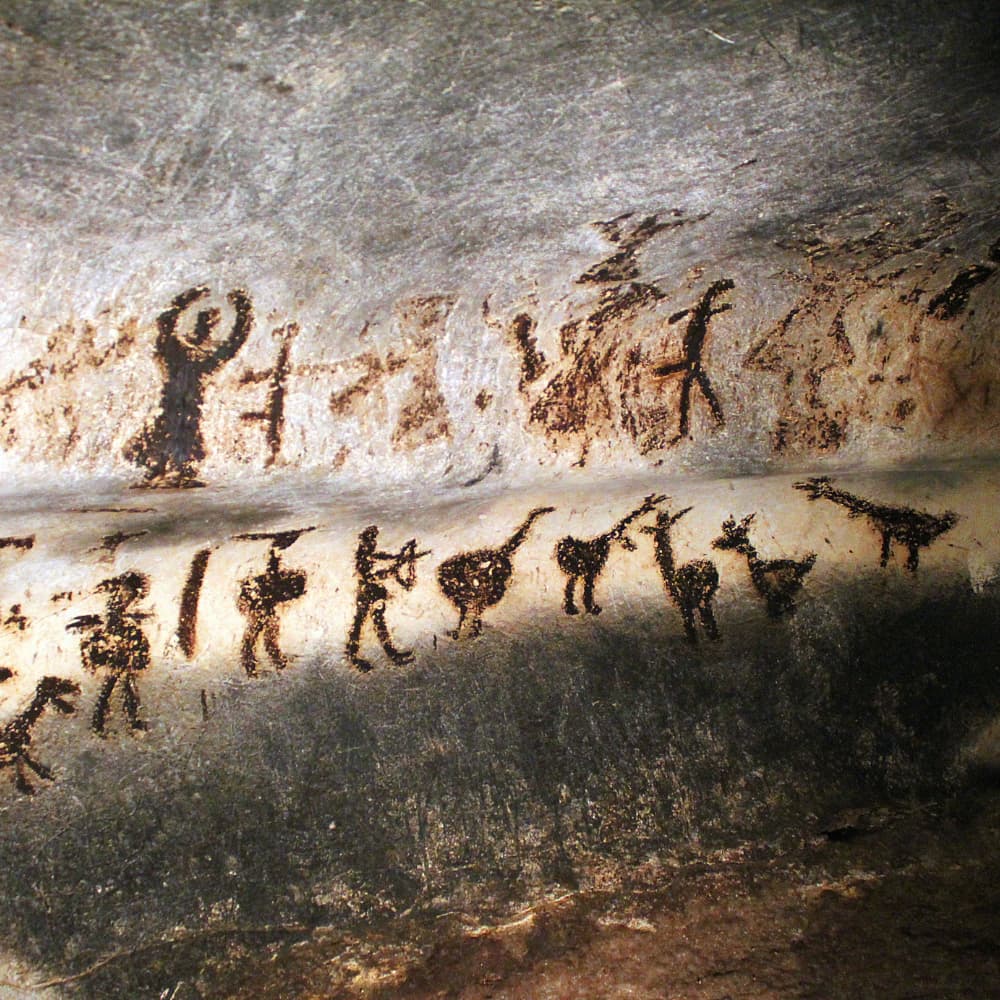STONED APE THEORY
The “Stoned Ape Theory” is a controversial hypothesis that suggests that early human ancestors evolved cognitive abilities by ingesting psychedelic mushrooms. The theory was popularized by ethnobotanist and writer Terence McKenna in the 1990s, and it remains a topic of debate among scientists and anthropologists.
McKenna suggested that during the early stages of human evolution, around 100,000+ years ago, our ancestors would have lived in the African Savannah, where they would have had access to a wide range of mushrooms, including psilocybin-containing species. These mushrooms would have been part of their diet, and they would have consumed them regularly.
McKenna argued that the use of these mushrooms would have led to significant changes in the human brain, allowing our ancestors to develop greater cognitive abilities and more sophisticated language skills. He suggested that the consumption of these mushrooms could have triggered a series of evolutionary events, including the development of art, music, religion, and other forms of symbolic thinking.

THE THEORY
The theory is based on several observations and assumptions. First, psilocybin mushrooms are known to have been used for religious and shamanic purposes in many cultures throughout history. Second, the active compounds in these mushrooms have been shown to affect the brain in profound ways, including altering perception, inducing mystical experiences, and increasing creativity. Third, the evolution of the human brain has been accompanied by the growth of a range of cognitive abilities, including language, creativity, and spirituality.
McKenna argued that the use of psilocybin mushrooms by early humans led to a “psychedelic revolution” in which the human mind evolved in new and unprecedented ways. He believed that this revolution helped humans to develop language, art, and religion, and to form complex social structures and cultural traditions. McKenna saw this evolution as a kind of “cultural symbiosis” between humans and psychedelic mushrooms, in which the fungi helped to shape human consciousness and culture.

CRITICS
Critics of the Stoned Ape Theory have challenged many aspects of the hypothesis. Some argue that there is no direct evidence to support the claim that early humans consumed psilocybin mushrooms, and that it is unlikely that these mushrooms would have been available in the African savanna. Others point out that the cognitive evolution of humans was likely to have been a complex and multifaceted process, involving many factors besides the use of psychedelics.
Despite these criticisms, the Stoned Ape Theory has attracted a devoted following among some proponents of psychedelics and alternative views of human evolution. Some researchers have attempted to test aspects of the theory in laboratory experiments, with mixed results. For example, one study published in 2011 found that psilocybin increased the creativity of participants in a controlled setting, while another study in 2019 found no significant effects of psilocybin on language processing.
Stoned Ape Theory remains a fascinating and controversial hypothesis about the evolution of the human mind. While there is little direct evidence to support the idea that early humans consumed psilocybin mushrooms, the theory has inspired new avenues of research into the effects of psychedelics on the brain and the evolution of human cognition. As our understanding of the human mind and its origins continues to evolve, the Stoned Ape Theory may yet provide valuable insights into the mysteries of human consciousness and culture.

